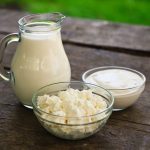Juicy Juice is a favorite among children and adults alike. Is it still available, and is it healthy?
Juicy juice is now available in major supermarkets after being one of the many that have problems in production during COVID-19. They offer a variety of 100% fruit juices both single-flavor and blended ones.
Should you be worried about its other ingredients? Find out more below!
Does Juicy Juice Still Exist or Has it Been Discontinued?
Juicy juice is now available in stores and online. According to the New York Post, there was a shortage of juice boxes and bottles. Suppliers were having challenges in packaging, logistics, and labor because of COVID-19 (source: NY Post).
Juicy Juice is owned by Harvest Hill Beverage Company which is one of the country’s prominent independent beverage companies in the U.S (source: Harvest Hill).
Juicy Juice is now available in H-E-B, Kroger, Walmart, Amazon, Target, and other major stores in the US as seen in this list.
Is Juicy Juice Healthy?
One cup of 100% fruit juice is equivalent to a cup of fruit. Fruit is an important source of nutrients such as vitamin C, potassium, fiber, and others.
Vitamin C is needed for the repair and growth of body tissues. It helps repair any damage in the body and helps the body grow, which is especially important for children. Potassium helps in normal blood pressure.
Fiber is great in lowering blood cholesterol, lowering the risk of heart disease, and good bowel process (source: My Plate).
However, fruit juices are not a significant source of dietary fiber because they don’t include the pulp which mostly contains fiber.
Juicy juice products also don’t have added sugars or artificial sugars. Excess sugar in the body can cause many problems such as insulin resistance or diabetes and inflammation. It can also lead to body weight gain and even liver disease (source: Harvard Medical School).
This is the same for children. Consuming excess sugar while young can lead to obesity, type 2 diabetes, and high blood pressure later on in life (source: Cleveland Clinic).
Is Juicy Juice Really 100% Juice?
Juicy Juice states that its products are made with 100% juice, but they are blended with other fruit juices to provide a wide selection of delicious flavors that people will be drawn to, especially children (source: Juicy Juice).
Other ingredients in their juices are citric acid and ascorbic acid. Citric is used to preserve and add natural flavor to food or beverage. Ascorbic acid, on the other hand, also adds flavor to food or beverage and fortifies it with its vitamin c component.
Citric acid and ascorbic acid will be discussed more in the next section.
Is Juicy Juice Gluten Free?
According to their website, their juicy juice products do not contain gluten because none of them contain wheat, rye, barley, or oats (source: Juicy Juice).
The common ingredients in their juices are ascorbic acid and citric acid. Both are gluten-free (source: Arizona Campus Health Service).
The Celiac Disease Foundation states that fresh and frozen vegetables are generally gluten-free. However, it is vital to read the labels on any commercial food products (source: Celiac Disease Foundation).
Furthermore, the packaging gives a lot of information. If the packaging says “gluten-free”, then it is most certainly gluten-free. The FDA mandates that a product can have the “gluten-free” label if it has less than 20 parts per million (PPM) of gluten.
If the packaging doesn’t bear the “gluten-free” label, read the list of ingredients because there might be suspicious ingredients present (source: Celiac Disease Foundation). You can find gluten-free and non-gluten-free ingredients on this list by the Arizona Campus Health Service.
Freshly pressed juice that comes from pure fruit juice is generally gluten-free as well as regular juice that comes from a concentrate or reconstituted juice only if it comes from pure fruit juice and is not exposed to gluten during production.
Can Juicy Juice Cause Diarrhea?
Juicy juice can only cause diarrhea if you take more than 2 servings or glass bottles of it per day.
According to their website, their juices don’t have added sugars, and only have fructose which is a natural sugar (source: Juicy Juice). Unfortunately, fructose is one of the major triggers of diarrhea.
This is because sugar stirs the gut to release water and electrolytes which then causes loose stools. Those who consume more than 40–80 grams of fructose a day will get diarrhea.
Another culprit is artificial sweeteners like sorbitol, xylitol, or mannitol (source: Harvard Medical School) but Juicy Juice doesn’t seem to have them in their juices.
Moreover, around 30% to 40% of individuals have a hard time absorbing considerable amounts of fructose (source: International Foundation for Gastrointestinal Disorders).
Don’t drink more than 2 servings per day if you are worried about diarrhea.
Always remember to read the packaging to make sure you are not consuming ingredients not allowed in your diet. Moreover, drink the juice moderately and according to the suggested serving.
We hope you found this helpful!







Comments are closed.